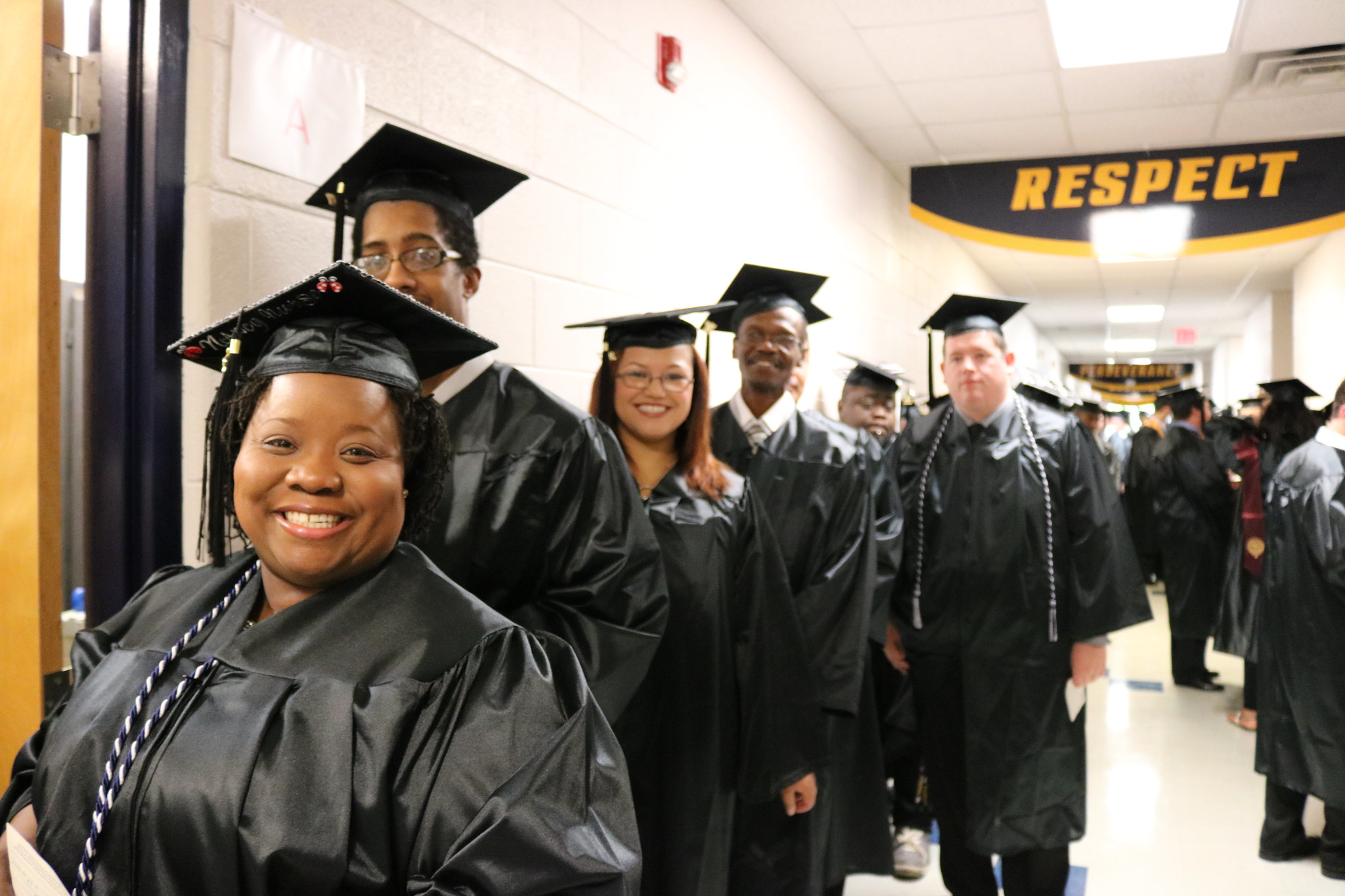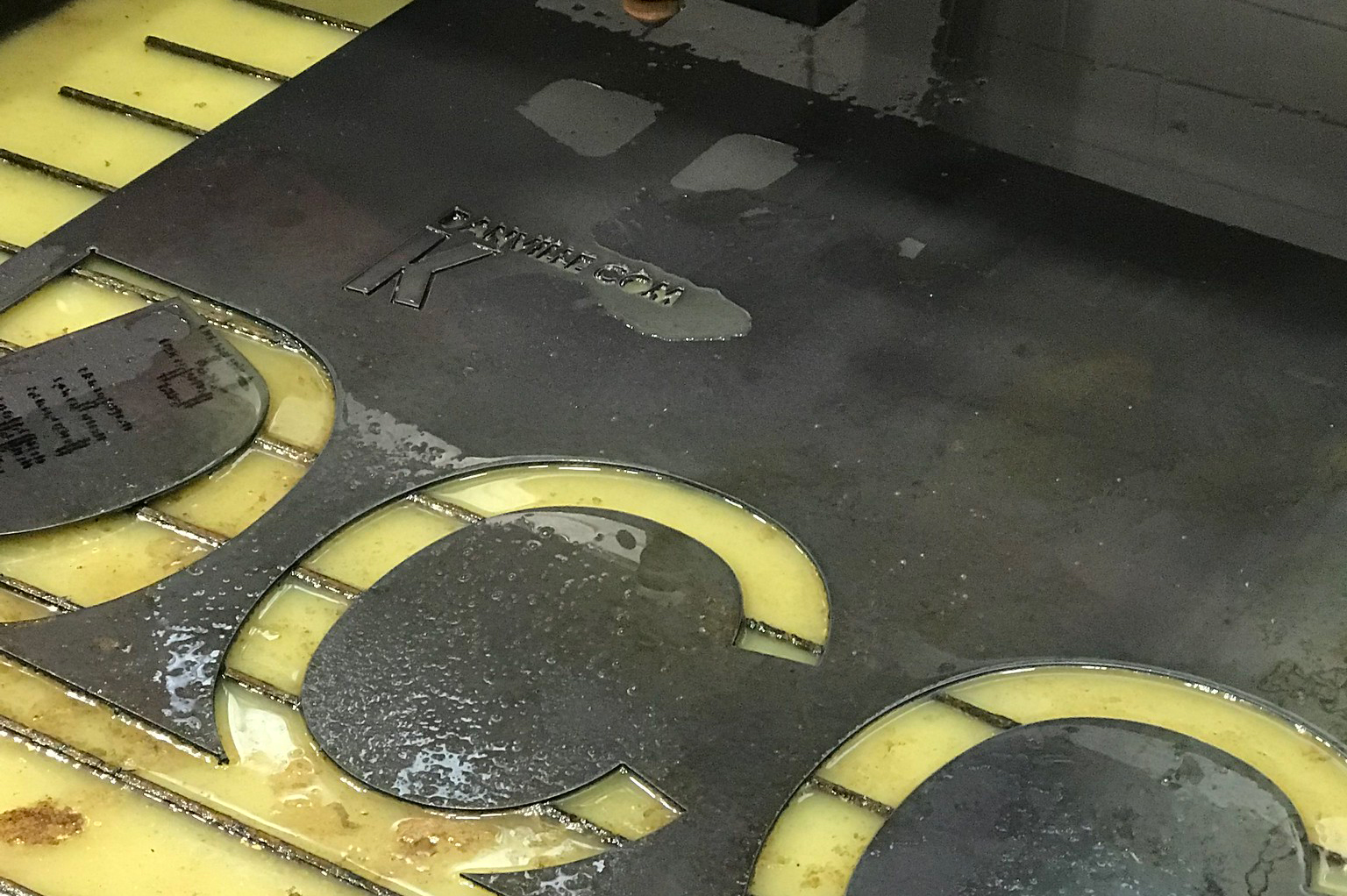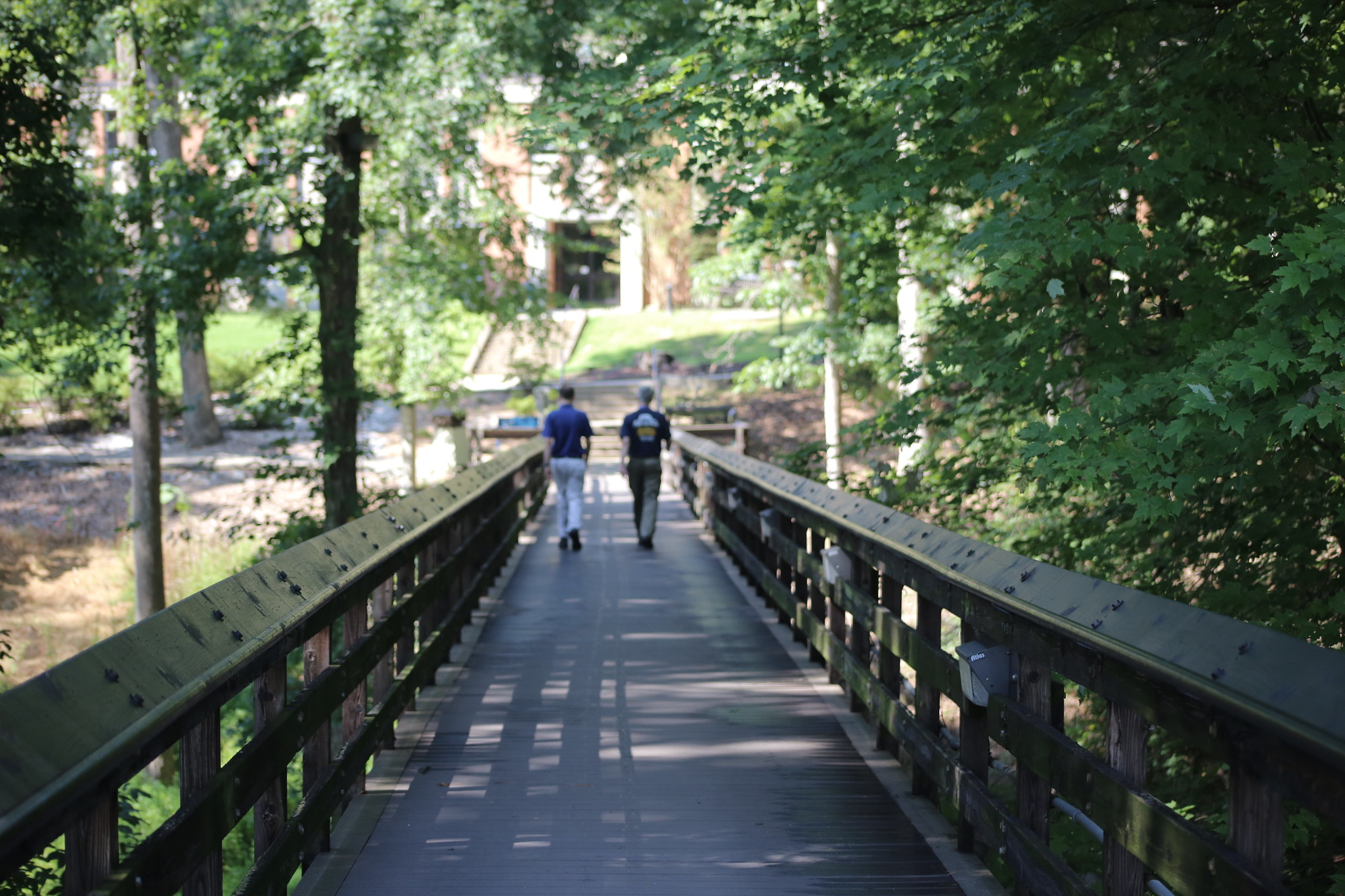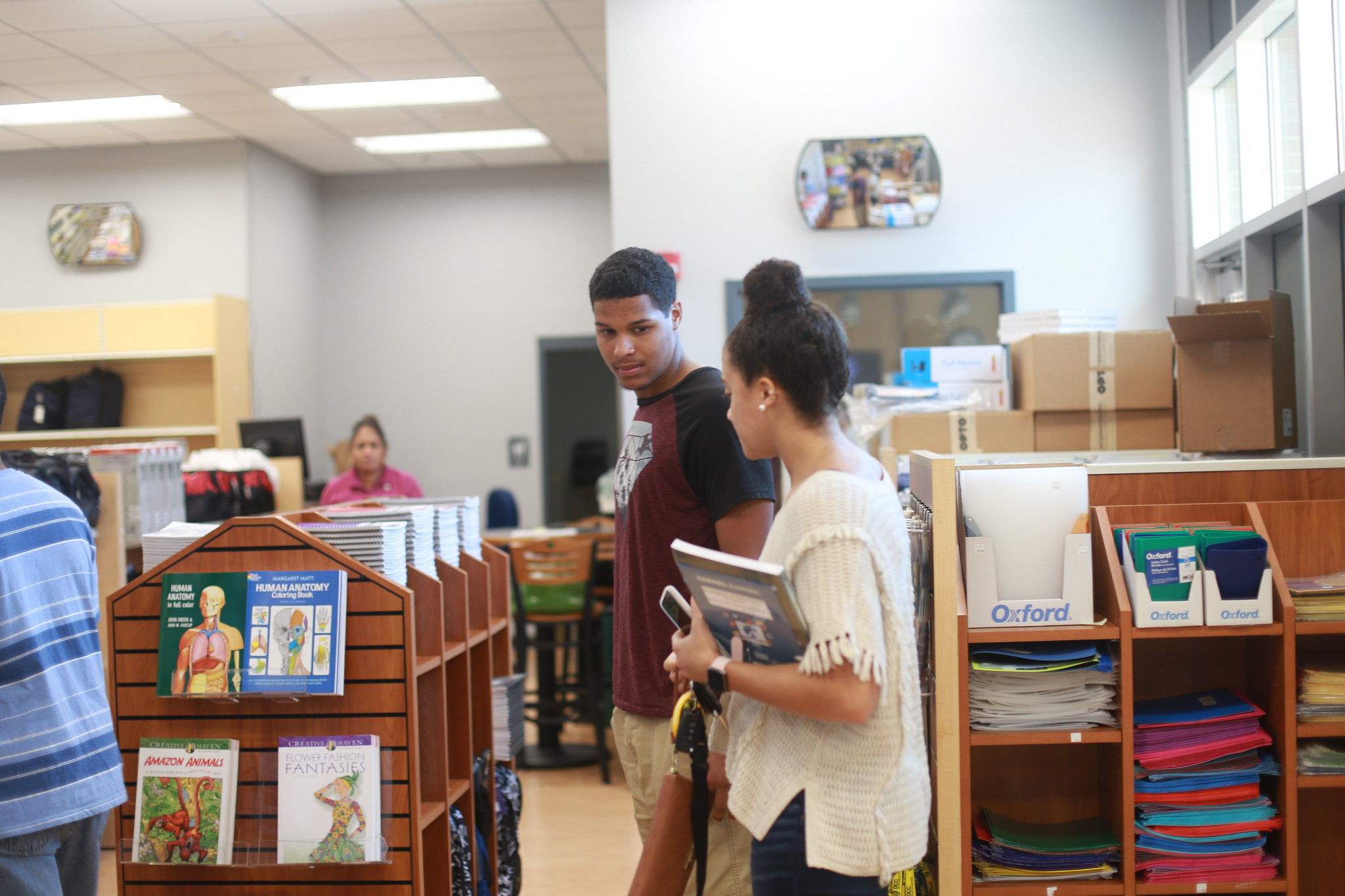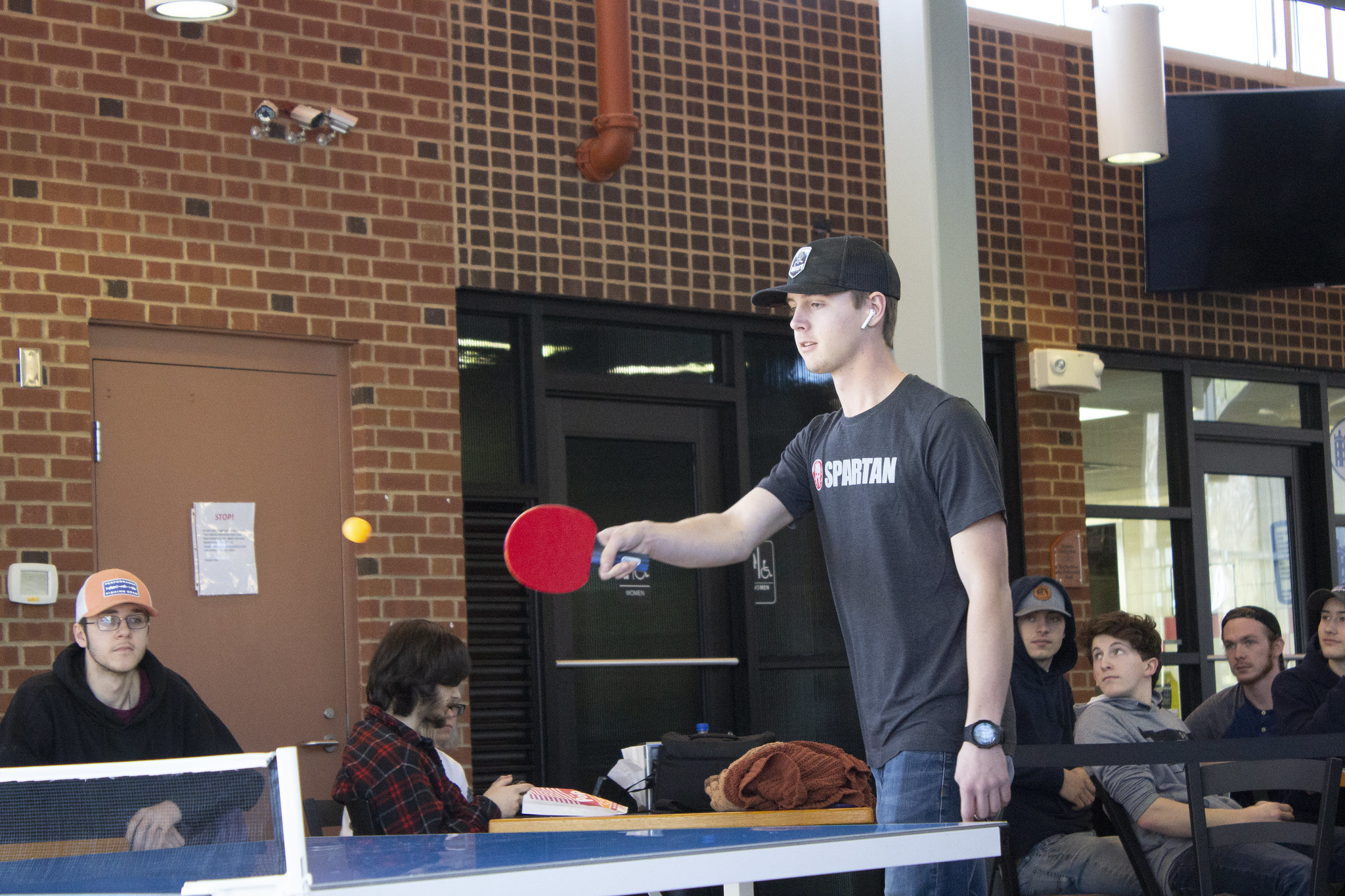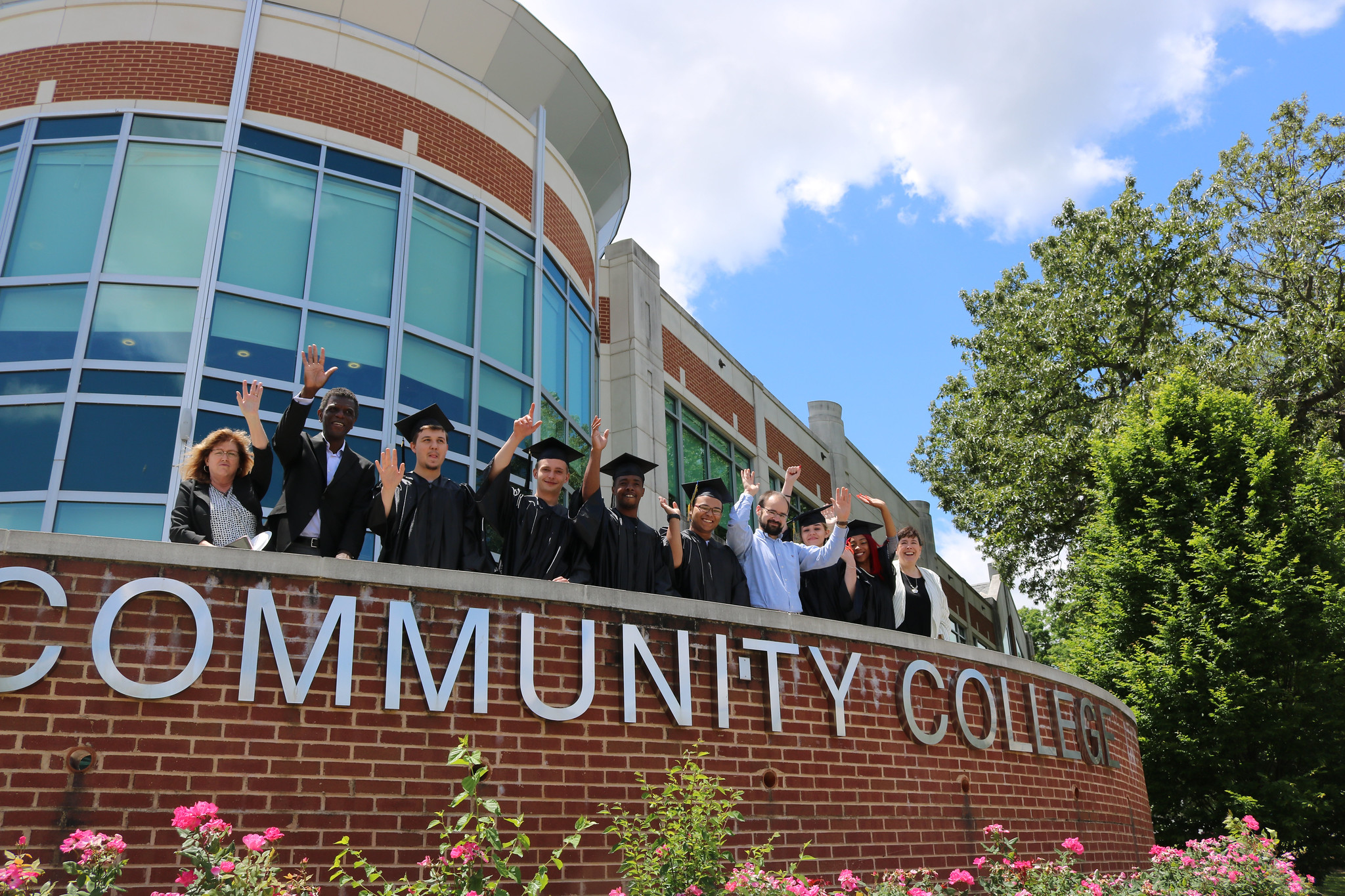Danville Community College is a two-year institution of higher education under the state-wide Virginia Community College System. DCC's service area includes the City of Danville, Pittsylvania County, and Halifax County. The college, its employees, and students are governed by the policies established by the State Board for Community Colleges and with the support and advice of the Danville Community College Board.
Danville Community College is one of 23 colleges in the Virginia Community College System. The associate degree curricula of the College have been approved by the State Council of Higher Education for Virginia.
Mission Statement
Danville Community College is committed to providing quality comprehensive higher education, workforce programs and services to promote student success and enhance business and community partnerships.
Vision Statement
DCC will be the college of choice in our region for exemplary educational programs and services while responding to the community's workforce and economic needs.
Core Values
Innovation
We value innovative thinking, improving processes, and implementing new ideas for success.
Accessibility
We provide access to ensure that all students are able to participate in and benefit from learning opportunities.
Momentum
We meet people where they are, create a supportive learning and working environment, and help them to identify goals and develop a clear path to success.
Dignity
We foster a culture of belonging that welcomes and respects everyone for who they are.
Courage
We courageously take initiative and action to continuously improve and stand up for what’s right with integrity.
Commitment
We are dedicated to assisting our students, partners, and employees to reach their full potential.
Continuous Non-Discrimination Statement
The following statement is also displayed on all Danville Community College web pages in the footer.
Danville Community College promotes and maintains educational and employment opportunities without regard to race, color, sex, ethnicity, religion, gender, age (except when age is a bona fide occupational qualification), disability, national origin, or other non-merit factors. Danville Community College prohibits sexual harassment including sexual violence.
See Annual Notice of Non-Discrimination
Building Community Statement
Danville Community College values the broad representation of its students, faculty, and staff. We are committed to creating and nurturing a campus environment which both welcomes and empowers all individuals regardless of race, ethnicity, gender, sexual orientation, gender identity, genetics, socio-economic background, nationality, veteran status, disability, age, political affiliation, or religious preference. We recognize cultural differences of background, experience, and national origin, and we seek to promote the common bonds of humanity which cross the boundaries of cultural difference. We embrace differences to create an environment of involvement, engagement, and respect for others.
General Education Goals
Civic Engagement is the ability to contribute to the civic life and well-being of local, national, and global communities as both a social responsibility and a life-long learning process. Degree graduates will demonstrate the knowledge and civic values necessary to become informed and contributing participants in a democratic society.
Critical Thinking s the ability to use information, ideas and arguments from relevant perspectives to make sense of complex issues and solve problems. Degree graduates will locate, evaluate, interpret, and combine information to reach well-reasoned conclusions or solutions.
Professional Readiness is the ability to work well with others and display situationally and culturally appropriate demeanor and behavior. Degree graduates will demonstrate skills important for successful transition into the workplace and pursuit of further education.
Quantitative Literacy is the ability to perform accurate calculations, interpret quantitative information, apply and analyze relevant numerical data, and use results to support conclusions. Degree graduates will calculate, interpret, and use numerical and quantitative information in a variety of settings.
Scientific Literacy is the ability to apply the scientific method and related concepts and principles to make informed decisions and engage with issues related to the natural, physical, and social world. Degree graduates will recognize and know how to use the scientific method, and to evaluate empirical information.
Written Communication is the ability to develop, convey, and exchange ideas in writing, as appropriate to a given context and audience. Degree graduates will express themselves effectively in a variety of written forms.
Approved October 30, 2018, by the DCC Curriculum Committee.
College Goals
1. Educational Programs: The college will provide quality credit and non-credit educational programs and instruction.
2. Faculty and Staff: The college will have an excellent faculty and staff.
3. Academic and Student Services: The college will provide quality services to assist students in achieving their academic and personal goals.
4. Educational Environment: The college will have facilities, equipment, and technology that enhance an effective learning environment.
5. Outreach Programs: The college will have a comprehensive outreach program.
6. Community Relations: The college will foster effective partnerships.
7. Resources: The college will obtain and use resources to achieve its mission and goals.
Location
The 86-acre campus is located approximately two miles from downtown Danville on South Main Street (Route 86).
History
Danville Community College developed from two institutions, Danville Technical Institute and the Danville Division of Virginia Polytechnic Institute opened in 1936 as Danville Textile School, becoming Danville Technical Institute just after World War II. The Danville Division of Virginia Polytechnic Institute first began as an engineering division in 1946, and was later expanded to include the first two years of course work for all engineering, business administration, liberal arts, and science majors. Beginning in the summer of 1966, all programs taught by Danville Technical Institute were brought under the Virginia Department of Community Colleges. Effective July 1, 1968, the Danville Division of Virginia Polytechnic Institute merged with the existing community college providing the comprehensive programs now offered.


